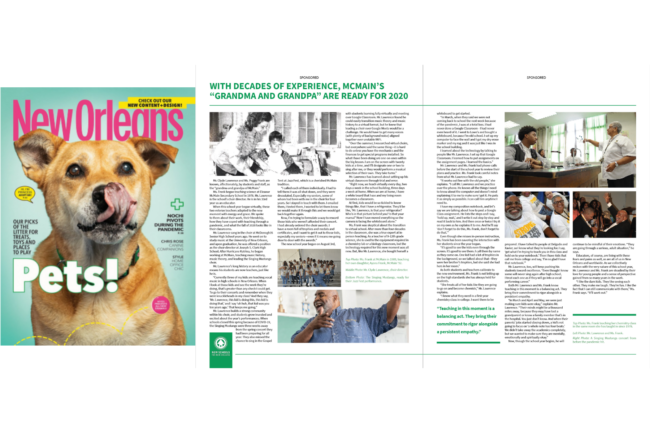The October issue of New Orleans Magazine hit newsstands last week and included the following sponsored article featuring Eleanor McMain Secondary School’s Ms. Peggy Frank and Mr. Clyde Lawrence, both veteran educators of over thirty years. They share how they are preparing and adapting for the 2020-2021 school year.
With Decades of Experience, McMain’s “Grandma and Grandpa”
Are Ready for 2020
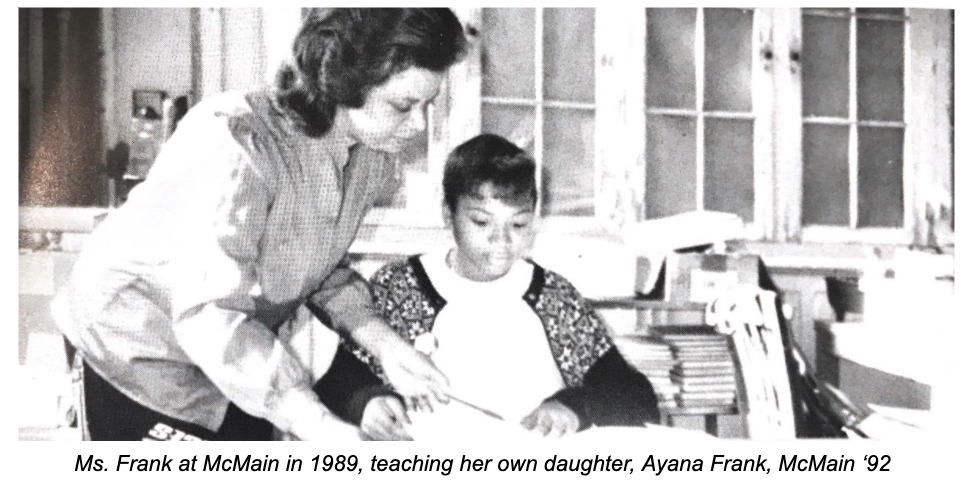
Mr. Clyde Lawrence and Ms. Peggy Frank are known, affectionately, by students and staff, as the “grandma and grandpa of McMain.”
Ms. Frank began teaching science at Eleanor McMain Secondary School in 1978. Mr. Lawrence is the school’s choir director. He is in his 33rd year as an educator.
Now, with the school year underway virtually, these two veteran teachers are adapting to a new moment with energy and grace. We spoke to them about their work, their friendship, how they have coped with teaching through a pandemic, and what the fall of 2020 looks like in their classrooms.
Mr. Lawrence sang in the choir at McDonough35 Senior High School years ago. He went on to study music at the University of New Orleans, and upon graduation, he was offered a position as the choir director at J.S. Clark High School. After Hurricane Katrina, he began working at McMain, teaching music history, music theory, and leading the Singing Mustangs choir.
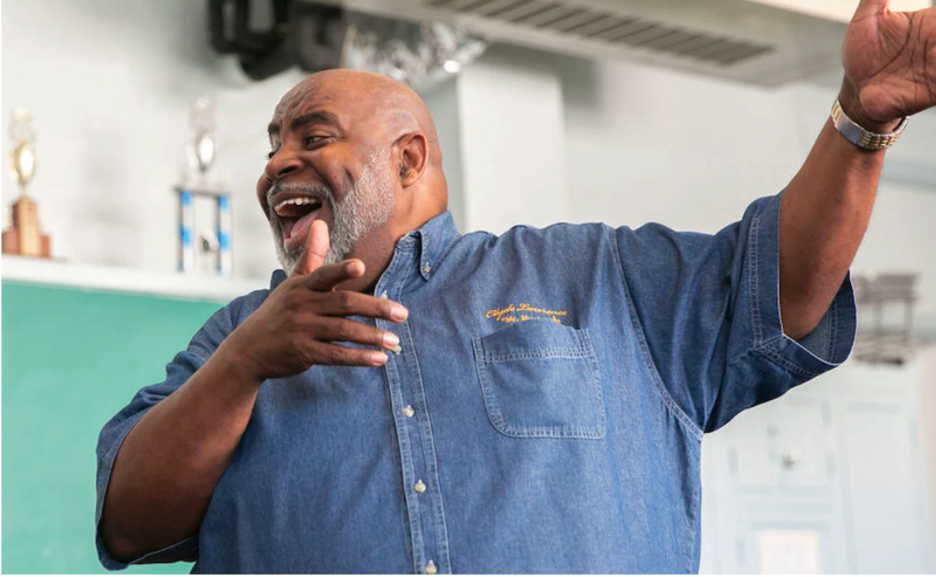
Mr. Lawrence’s long history as an educator means his students are now teachers, just like he is.
“Currently three of my kids are teaching vocal music in high schools in New Orleans. When I look at those kids and see the work they’re doing, that’s greater than any check I could get. To go to their concerts and remember when they were knuckleheads in my class? And they say, ‘Mr. Lawrence, this kid is doing this, this kid is doing that,’ and I say ‘uh huh, that kid was you ten years ago.’ That keeps me going.”
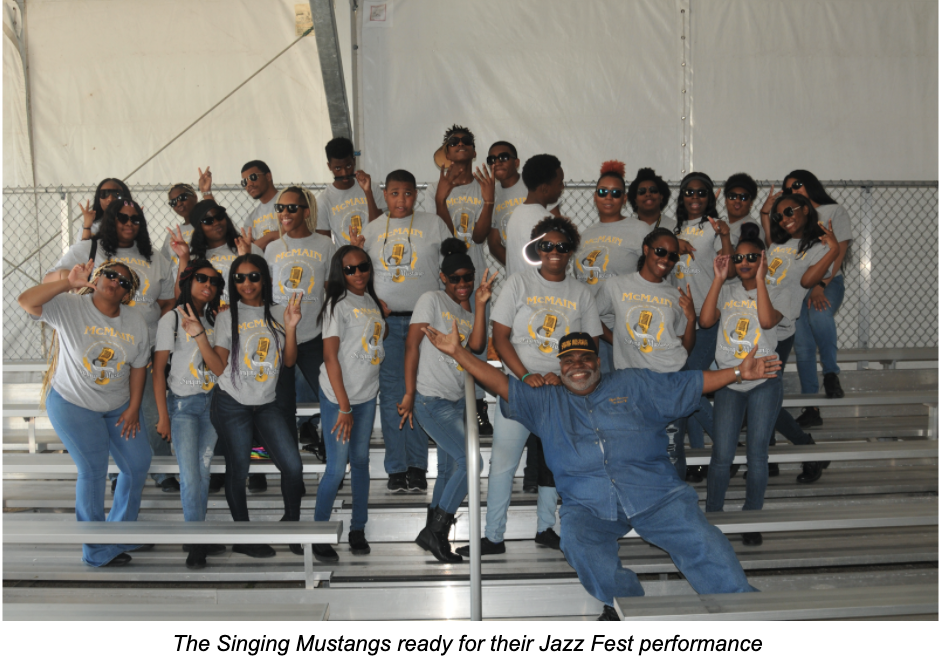
Mr. Lawrence builds a strong community within his choir, and students grow invested and excited about the year’s performances. When schools closed this spring because of COVID-19, the Singing Mustangs were three weeks away from the spring concert they had been preparing for all year. They also missed the chance to sing in the Gospel Tent at Jazz Fest, which is a cherished McMain tradition.
“I called each of them individually. I had to tell them it was all shut down, and they were devastated. Especially my seniors, some of whom had been with me in the choir for four years. So I stayed in touch with them. I emailed them, I texted them, I wanted to let them know we would make it through this and we would get back together again.
Now, I’m trying to formulate a way to reward those kids who weren’t afforded their concert. I had already ordered the choir awards. I have a room full of trophies and medals and certificates, and I want to get it out to those kids, especially my seniors—even if it means me going door to door with the awards.”
The new school year began on August 3rd, with students learning fully virtually and meeting over Google Classroom. Mr. Lawrence found he could easily transition music theory and music history to a virtual format, but he knew that leading a choir over Google Meets would be a challenge. He would have to get many voices (with plenty of background noise) aligned together over unstable WiFi.
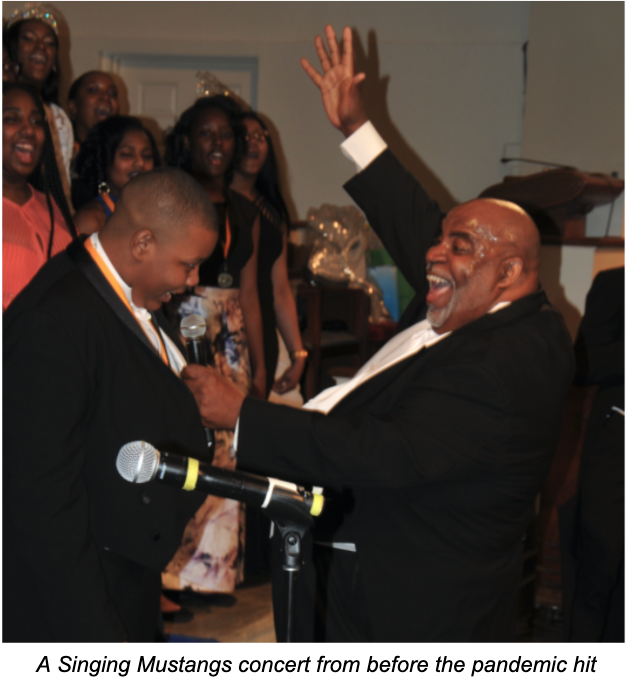
“Over the summer, I researched virtual choirs, but everywhere said the same thing—it is hard to do unless you have the mechanics and the finances to get special programs installed. So what I have been doing are one-on-ones within the big lesson. I am on the screen with twenty kids at a time, and I’ll designate one or two to sing after me, or they would perform a musical selection of their own. They take turns.”
Mr. Lawrence has learned about setting up his virtual classroom through trial and error.
“Right now, we teach virtually every day, two days a week in the school building, three days a week at home. When we are at home, I have a white board that I use and my living room becomes a classroom.
At first, kids would be so tickled to know things like, that I have a refrigerator. They’d be like, ‘Mr. Lawrence, is that your refrigerator? Who’s in that picture behind you? Is that your mama?’ Now I have moved everything so the camera is facing the whiteboard alone.”
Ms. Frank was skeptical about the transition to virtual school. After more than four decades in the classroom, she was a true expert at in-person teaching. As a teacher of 9-12th grade science, she is used to the equipment required in a chemistry lab or a biology classroom, but the technology required for this new moment was all new. But, like Mr. Lawrence, she bought herself a whiteboard to get started.
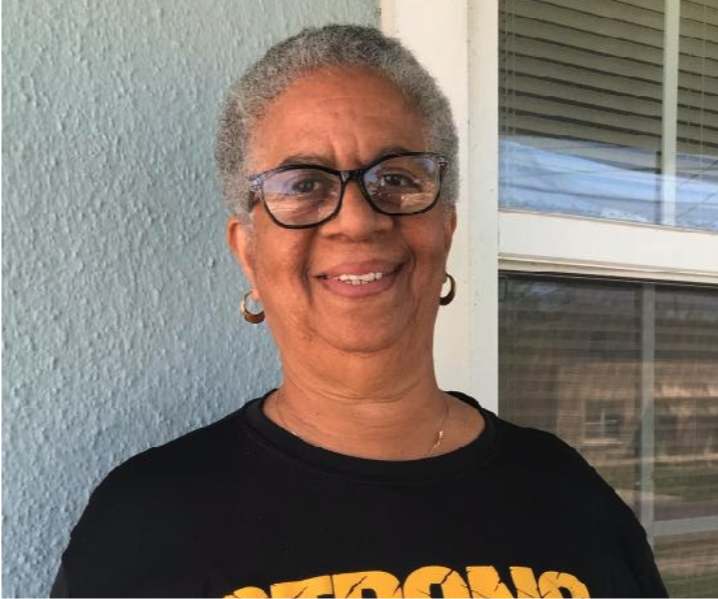
“In March, when they said we were not coming back to school the next week because of the pandemic, I was at a total loss. I had never done a Google Classroom – I had never even heard of it. I went to Lowe’s and bought a whiteboard, because I’m old school. I set up my computer to face the wall and I got my dry erase marker and my rag and it was just like I was in the school building.
I learned about the technology by talking to people like Mr. Lawrence. I set up that Google Classroom. I learned how to put assignments on the assignment pages. I learned the basics.”
Mr. Lawrence and Ms. Frank had phone calls before the start of the school year to review their plans and practice. Ms. Frank took careful notes from what Mr. Lawrence had to say.
“It works out fine with the old people,” she explains. “I call Mr. Lawrence and we practice over the phone. He knows all the things I need to know about the computer and doesn’t mind explaining it to me to make sure I get it. He puts it as simply as possible. I can call him anytime I need to.
I have my composition notebook, and let’s say we are talking about how to post a Google Class assignment. He lists the steps and I say, ‘hold up, wait,’ and I write it out step by step and read it back to him. And then once or twice I try it on my own as he explains it to me. And he’ll say ‘don’t forget to do this, Ms. Frank, don’t forget to do that.’”
Even though she misses in-person instruction, Ms. Frank has been savoring the interaction with her students since the year began.
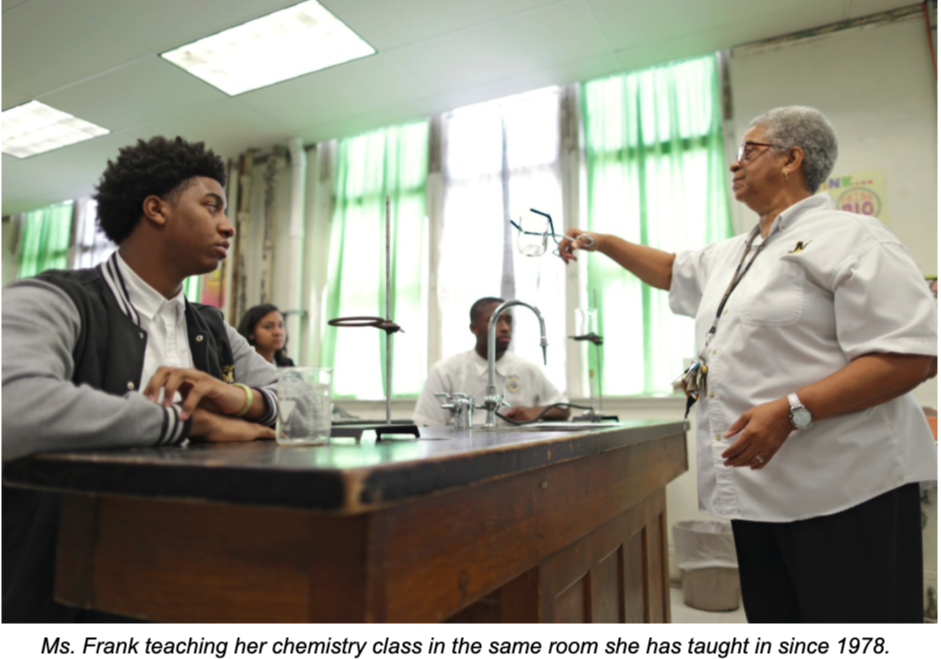
“It’s good to see the kids even through the screen. It’s good to see them. I call them by name as they come on. One kid had a lot of trophies in the background, so we talked about that—they were her brother’s trophies, but she said she had hers in her room.”
As both students and teachers calibrate to the new environment, Ms. Frank is not letting up on the high standards she has always held for students.
“She treats all of her kids like they are going to go on and become chemists,” Mr. Lawrence explains.
“I know what they need in a first-year chemistry class in college. I want them to be prepared. I have talked to people at Delgado and Xavier, so I know what they’re looking for. I say, ‘get what I’m trying to teach you in this class and hold on to your notebook.’ Then I have kids that call me from college and say, ‘I’m so glad I have that notebook.’”
Mr. Lawrence, too, will keep pushing his students toward excellence. “Even though I know some will never sing again after high school, I treat each one as if they will go into a vocal performing career.”
Both Mr. Lawrence and Ms. Frank know teaching in this moment is a balancing act. They bring their commitment to rigor alongside a persistent empathy.
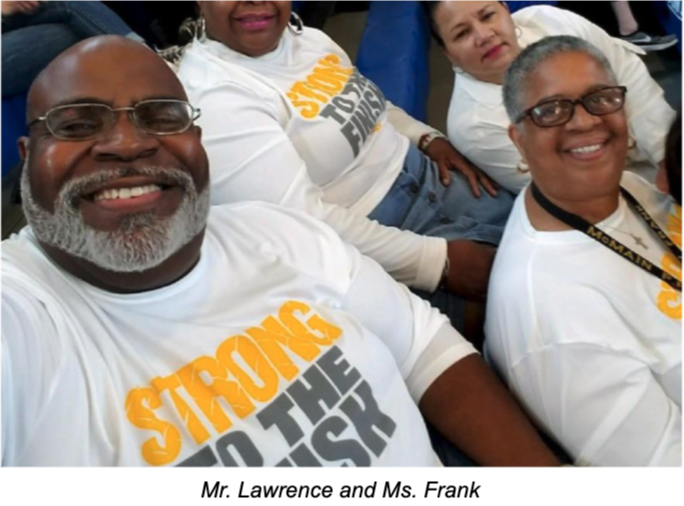
“In March and April and May, we were just making sure kids were okay,” explains Mr. Lawrence. “Their minds might be a thousand miles away, because they may have lost a grandparent or know a family member that’s in the hospital. You just don’t know. And when their parents’ jobs started closing down, a kid’s not going to focus on ‘a whole note has four beats.’ We didn’t take away the academics completely, but we wanted to make sure they are mentally, emotionally and spiritually okay.”
Now, though the school year begins, he will continue to be mindful of their emotions. “They are going through a serious, adult situation,” he says.
Educators, of course, are living with these fears and pains as well, as are all of us in New Orleans and worldwide. As we collectively reckon with the very nature of this school year, Mr. Lawrence and Ms. Frank are steadied by their love for young people and a sense of perspective gained from so many years in the work.
“I like the darn kids. They like seeing each other. They make me laugh. They’re fun. I like the fact that I can still communicate with them,” Ms. Frank says. “It’ll work out.”
